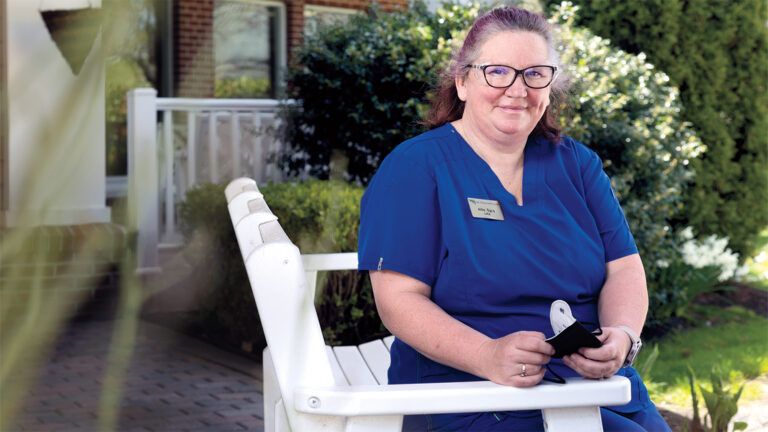Allie Sgro found success—and fulfillment—as a dementia caregiver by thinking on her feet and treating the seniors she cares for with respect. Home Instead gerontologist and caregiver advocate Lakelyn Eichenberger lauds professionals who take a person-centered care approach—preserving dignity, enhancing safety and easing dementia-related behaviors.
“When you can make people living with dementia feel safe and comfortable and honor their routine, they’ll likely be less agitated,” she says. Here’s how to put the person first.
Build a relationship. Invest the time to get to know the person. “Don’t take over everything right away,” says Eichenberger. “Ease into an assisting, supporting and encouraging role. Ask the person for help doing things. That way you build mutual trust.”
Encourage independence. “A person living with dementia is grappling with losing the ability to do so much,” Eichenberger says. “Try setting them up for success.” For instance, even if they have forgotten how to brush their teeth, they may be able to do it with a few verbal or visual cues.
Learn their life history. “Always remember that they were a person before they had dementia,” says Eichenberger. “They still have likes and dislikes.” For example, if you learn that the person was an avid golfer, you can incorporate that information into their care. “Maybe they can’t golf 18 holes anymore,” she says. “But you could go to a driving range and watch. Or set up a little putt-putt in the backyard.”
Engage in meaningful activities. People living with dementia still like to help out and feel useful. “Let them set the table,” Eichenberger says. “Yes, the care professional could do it in half the time, but it provides them with meaning and purpose. Maybe they can’t do the laundry from start to finish, but they can help fold clothes. Let them feel as if they are contributing something to the household.”
Be patient and flexible. Because Alzheimer’s is a progressive disease, situations change rapidly. “So many times you have to be adaptable and switch gears,” Eichenberger says. “What worked last week may not work anymore. Patience is probably the number-one characteristic you need as a caregiver. It helps if you can laugh things off and say, ‘I’m not going to take this personally. I’m just going to focus on finding a solution.’”
For more on professional caregiving services or to become a Home Instead care professional, visit homeinstead.com or call 866-996-1085.
For more inspiring stories, subscribe to Guideposts magazine.





